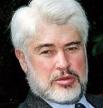More free speech at the country club than on campus
One of the most inspiring speeches I have heard in a long time was given last week at the Johannesburg Country Club, where Flemming Rose delivered the 44th Hoernlé Memorial lecture to members of the South African Institute of Race Relations (IRR).
Mr Rose, at the time an editor on a Danish newspaper, Jyllands-Posten, sprang from obscurity to global notoriety in 2005 when he published a cartoon of the Muslim prophet Mohamed with a bomb in his turban. He did so not as an act of provocation, but because he been shocked at the self-censorship in the Danish press and wanted both to highlight this and to take a stand against it. He did not foresee the outrage his action would cause, let alone that it would necessitate having to employ bodyguards even today.
Professor RF Alfred Hoernlé and his wife, Agnes Winifred Hoernlé, served as presidents of the IRR in the 1930s and 1940s. They helped to guide its views on race and its liberal philosophy. Mr Rose delivered this lecture after being disinvited from delivering the TB Davie Lecture at the University of Cape Town (UCT). He had been invited to do so by the university's academic freedom committee, but the committee was overruled by the university's vice chancellor, Max Price.
Dr Price claimed that the lecture might provoke violence. He also said that allowing it to go ahead "might retard rather than advance academic freedom". Well, to paraphrase Cicero, there is no argument so absurd an academic will not think of it.
UCT has been on this slippery slope of appeasement ever since it bullied the Irish writer and politician Conor Cruise O'Brien into cancelling a series of lectures back in 1986. Dr O'Brien had said that the academic boycott of South Africa then supposedly in force was a "Mickey Mouse" affair, a view too heretical to be tolerated on that campus. (The University of the Witwatersrand, to its shame, followed suit.)
When Dr O'Brien's lectures were cancelled, the IRR immediately invited him to talk in our hall in Braamfontein, a celebrated haven of free speech throughout the apartheid era. We believed that somebody in South Africa had to stand up for free speech by giving him a platform. Unfortunately, he was already booked to return to Ireland so it was not to be. But now, 31 years later, the IRR provided platforms in both Johannesburg and Cape Town for Mr Rose.
One of the points he made was that, far from now being firmly entrenched, free speech has been steadily eroded in the last few decades. The obvious enemies are the likes of Vladimir Putin. But also inimical to free speech are supposedly liberal governments which seek, selectively, to suppress views which may cause offence. Political correctness, a form of left-wing McCarthyism, rules the roost.
Previously, one could rely on the Democratic Alliance – or at least its predecessors – to defend free speech. Its witch-hunt against its former leader, Helen Zille, for innocuous remarks about colonialism warns us that any such reliance would now be misplaced. As for the press ombudsman, heaven help those who value the freedom of the press. He ordered the Huffington Post to apologise for publishing "hate speech" in the form of remarks that were supposedly "discriminatory, denigratory, malicious, inflammatory, extreme, unjust, exaggerated, against the public interest, impairing of dignity," factually inaccurate," etc.
This for a spoof by Marius Roodt, using the nom de guerre Shelley Garland, calling for white men to be disenfranchised for a generation. What next? Is the Lerner and Loewe musical My Fair Lady to be banned as denigratory for its song "Why can't a woman be more like a man?"
In the meantime, we must draw comfort from the fact that, courtesy of the IRR, you can exercise free speech at the Johannesburg Country Club even if not at UCT.
* John Kane-Berman is a policy fellow at the IRR, a think-tank that promotes political and economic freedom. His memoirs, Between Two Fires - Holding the Liberal Centre in South African Politics, were recently published by Jonathan Ball.

